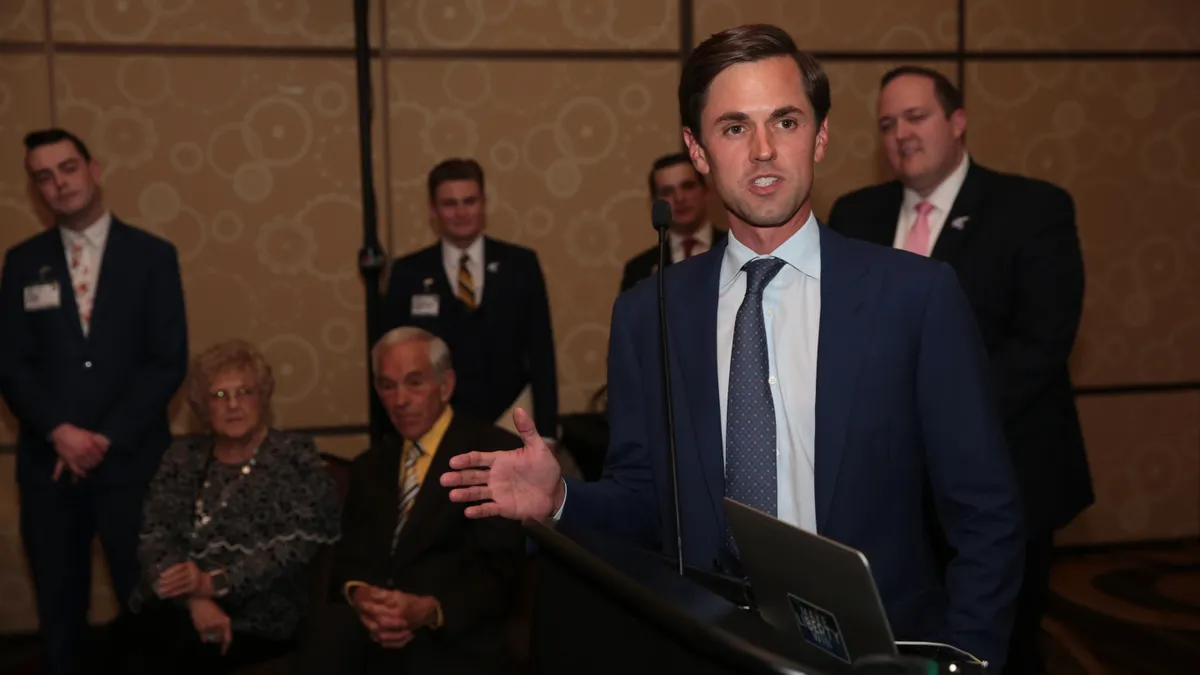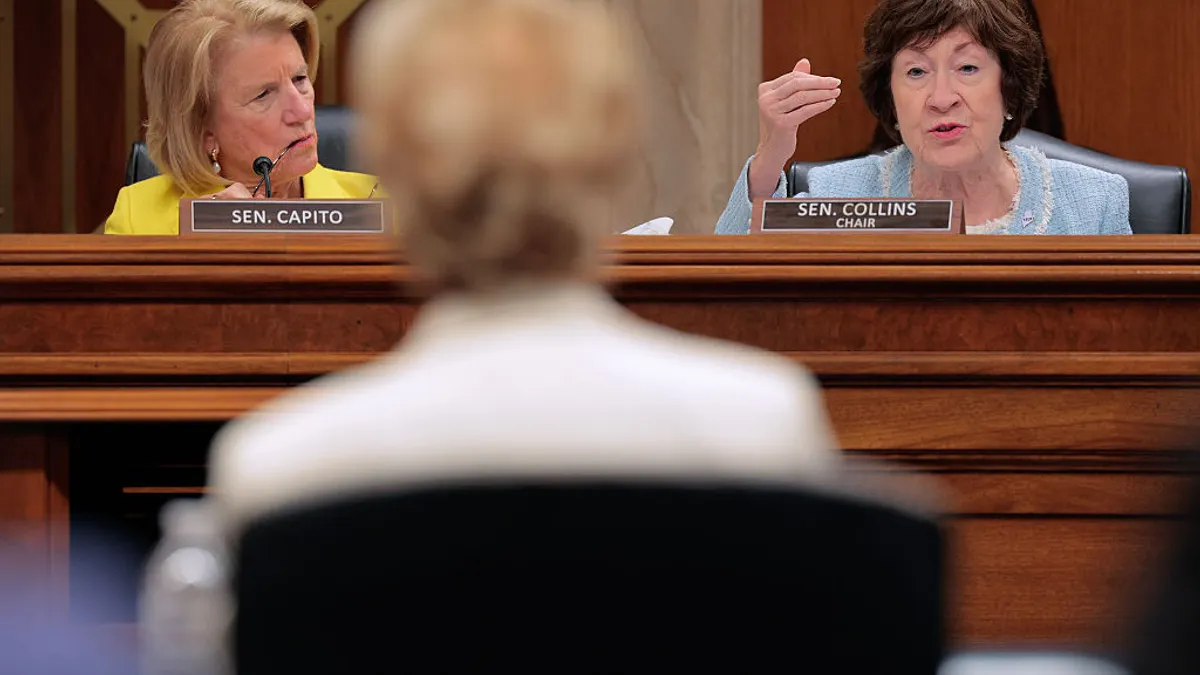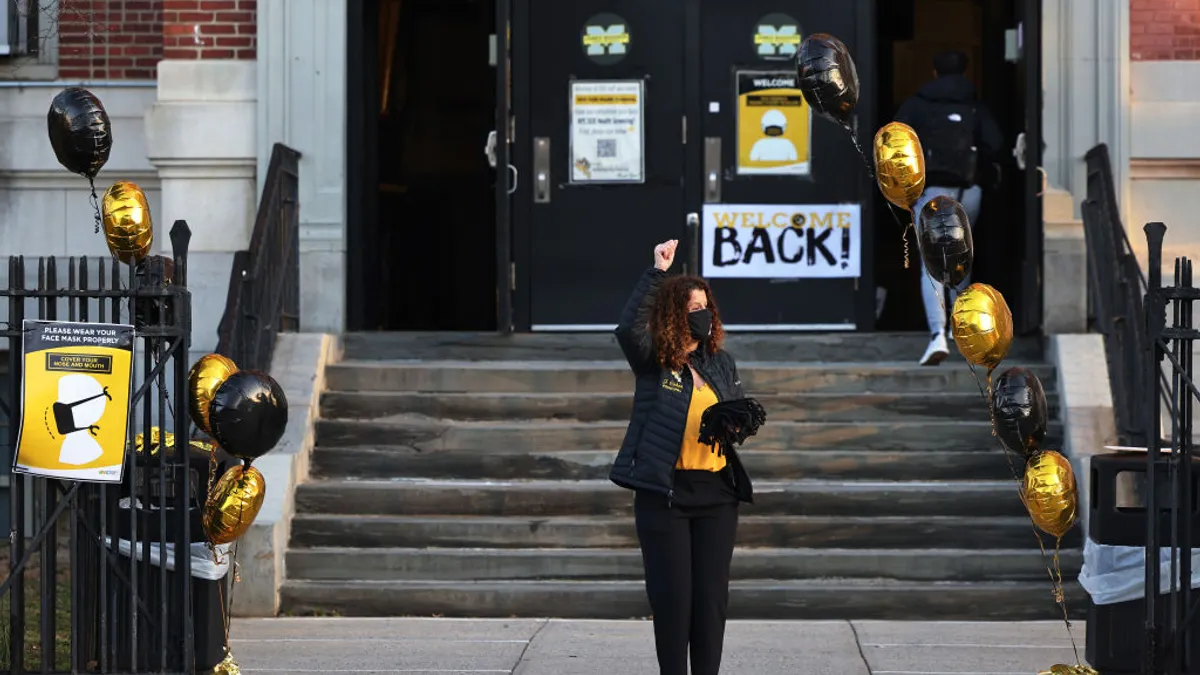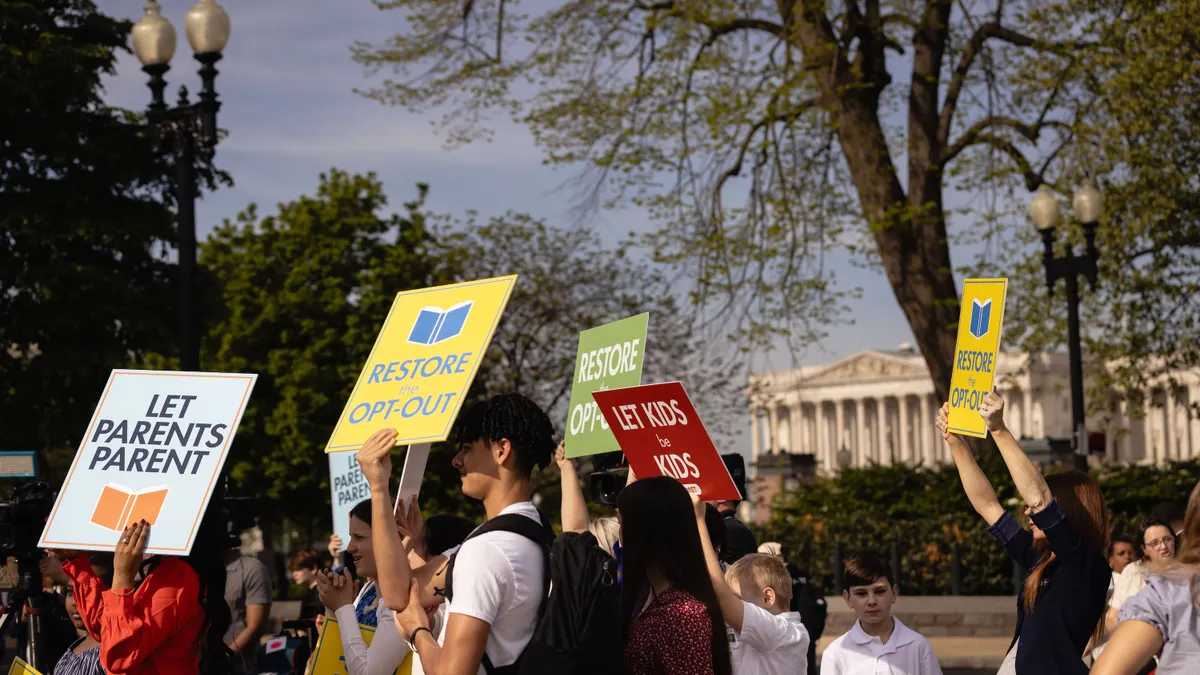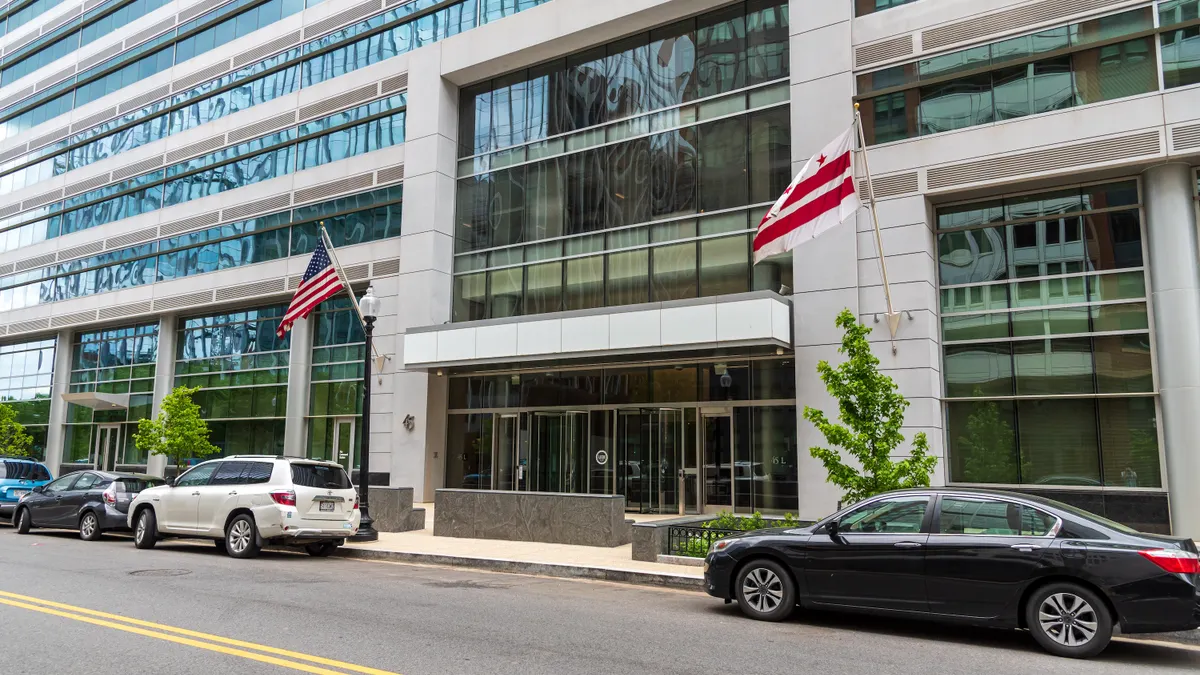Texas superintendents and school board members are being warned by civil rights groups to steer clear of a newly enacted state law that allows districts to hire chaplains in schools.
The law, signed by Gov. Greg Abbott on June 18, would violate the First Amendment if adopted by districts, said the American Civil Liberties Union and other civil rights groups in a letter sent Monday to Texas education leaders.
Senate Bill 763, a Republican-backed measure passed along party lines, allows public school districts and charter schools to employ a chaplain or accept one as a volunteer "to provide support, services, and programs for students." It also stipulates that the chaplain cannot be a known sex offender.
The law takes effect Sept. 1 and requires every school board in Texas to decide by March 2024 whether to adopt a policy authorizing school chaplains.
The civil rights groups maintain, however, that "hiring or otherwise allowing chaplains in public schools would amount to state sponsored religion and lead to religious proselytization and coercion of students, as well as other violations of the U.S. and Texas Constitutions."
"We thus urge you to vote against adopting a chaplaincy policy and to decline to hire or accept chaplains in your schools," said the June 26 letter from the ACLU, Americans United for Separation of Church and State, and Freedom From Religion Foundation to Texas school boards.
The groups listed a number of concerns. Chief among them: Hiring or accepting chaplains will likely lead to the promotion or preference of certain religions over others, influencing students in the process.
By hiring chaplains, who are linked to certain religious groups, schools will "inherently give preference to particular denominations," the groups wrote."Schools that do so and decline to accept chaplains of minority religions, even controversial ones, will place themselves at greater risk of liability."
Senate Bill 763 The Texas School Chaplain Bill is now law in the Great State of Texas! This is the first school chaplain bill in America! Thank you @GregAbbott_TX @DanPatrick @DadePhelan @mayes_middleton @ColeHefnerTX @BradBuckleyDVM @CreightonForTX & @AndrewHerrell_
— Julie Pickren (@Julie4TX) June 19, 2023
It has been…
Chaplains — who aren't required by the law to be certified by the state board as educators — are also not apt to have the training necessary to avoid religious counseling and promotion in public schools. Such practices are widely accepted as prohibited by the First Amendment based on previous court rulings.
"In school districts that adopt chaplaincy policies, many students will be vulnerable to religious indoctrination," said the letter. For example, students may be pressured to join chaplains in prayer, according to the groups.
Religion in public schools a recent hot issue
While it's constitutional to allow chaplains in certain environments such as hospitals and prisons, the Supreme Court addressed the issue of religious exercise in schools last year in Kennedy v. Bremerton School District.
That case arose after parents said a high school football coach's prayers after games, which he said aloud and quietly to himself, coerced students to join.
In that case, the majority ruled in favor of the football coach, but acknowledged a line between private expression of religion and "impermissible government coercion."
Previous cases have also addressed the role of religious figures and practices in schools.
In Zorach v. Clauson, a 1952 case cited in the Supreme Court's Bremerton decision, the high court ruled in favor of a school district that allowed students to leave school for part of the day for religious instruction, partly because there was no evidence any employee had “us[ed] their office to persuade or force students” to participate in religious activity.
In Lee v. Weisman, the court decided in 1992 that school officials violated the First Amendment by including a clergy member who publicly recited prayers during a school graduation ceremony, because the school had “in every practical sense compelled attendance and participation in” a “religious exercise.”
'Putting prayer back' in schools to help with mental health
Texas state Sen. Mayes Middleton, who introduced the chaplain bill in February, has described it as "putting prayer back in public schools." In an April committee hearing, Middleton said chaplains "represent God in our government."
In addition, he said, chaplains can provide nonreligious services, such as spiritual care, trauma care and confidential counseling, to help address increasing mental health issues among students.
This "adds a tool among other tools on the table for our school districts to provide resources to our students in need," said Middleton, a Republican.
However, the civil rights organizations said, the legislation's exemption for chaplains from certification requirements that apply to counselors and educational professionals "would result in a preference for religion over nonreligion."
During discussion on the bill, meanwhile, Democratic lawmakers shared concerns that it would lead to preferential treatment for some religions over others.
"As a practical matter I think it's unlikely that we're going to see anything close to parity in representation in terms of which religion is represented by chaplains on a school campus," said Sen. Nathan Johnson, a Democrat, on the Texas Senate floor in April. "I just don't think we're going to see Muslim [imams] and Jewish rabbis on a campus."
The ACLU warned that the groups will be "monitoring school boards’ responses to the new law" in a Monday news release.



